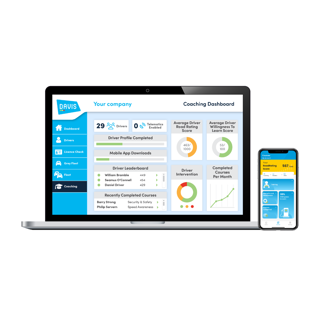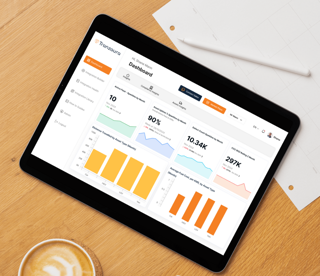Brake is calling for employers to play their part in preventing pedestrians and cyclist casualties after research found 54% of companies don't provide driver education on protecting pedestrians and cyclists.
Newly-released Government figures show six people are killed and 157 seriously injured every week while walking or cycling. At least 24% of road deaths and serious injuries involve a vehicle being driven for work.
The Brake and Licence Bureau research also found:
- Two-thirds (68%) don't instruct drivers to slow down to 20mph around schools, homes and shops.
- Six in 10 (61%) don't instruct drivers on looking twice and checking mirrors at junctions for cyclists or motorcyclists.
- Nine in 10 (89%) don't plan routes to avoid schools and residential areas.
- Eight in 10 (80%) don't use blind spot sensors and seven in 10 (70%) don't use blind spot cameras on large commercial vehicles;.
- Almost half (45%) don't use telematics to monitor driver speed, so have no way of knowing if drivers are routinely endangering others by driving too fast.
The survey included 228 companies operating commercial vehicles, company cars or vans, or with employees who drive their own vehicles to business appointments.
Brake advises employers with staff who drive for work to take a range of steps to protect our most vulnerable road users - pedestrians, cyclists and motorcyclists, who account for 59% of UK road deaths and serious injuries,
These steps include thorough journey planning, driver education, making use of technology to minimise blindspots and monitor speed, and building a culture of always putting safety first.
Ellie Pearson, senior professional engagement officer at Brake, said: "Employers have a crucial role to play in preventing people on foot and bicycle needlessly losing their lives or suffering terrible injuries.
"Some are working hard and taking advantage of new technologies to minimise the risks their staff pose when driving on company time.
"And we know that when employers reduce these risks, they reap benefits like reduced costs and enhanced morale and reputation.
"But it is disappointing that many employers are failing to take simple steps to ensure their drivers are doing everything possible to protect pedestrians and cyclists.
"We're appealing to all employers with staff who drive for work to get the right policies in place, make use of technologies to address blindspots and speeding, and ensure their drivers understand that protecting people always comes first."
Les Owen from Licence Bureau said: "Very little work is involved for companies to show an interest in improving road safety and yet so few do anything about it. Companies hold the keys but do not engage in the process. Is it fear of challenging staff about driving?
"Delivering work related road risk messages is key to preventing incidents on the road. There is every reason for companies to make road safety a priority, and incidentally save money over time.
"Start with engaging staff who drive at work but also those who are vulnerable road users. They could all be given safety messages to reduce staff absences through injury or worse. Drive safely."
Brake is also encouraging employers to sign up now to take part in its road safety week, November 17-23, which will focus on the theme ‘look out for each other'.
Companies that register at http://www.roadsafetyweek.org.uk/ get a free pack of resources to help them promote safe driving messages.
- Next month is safety month for Fleet News, coinciding with Brake’s road safety week. Look out for our two themed issues: November 13 - safety and product and November 27 - safety and people, plus content on our website.






















Darren - 15/10/2014 12:13
I think more education needs to be given to the pedestrians and cyclists. The amount of pedestrians I see crossing the road without taking their eyes off their phones, crossing a busy road 10 yards away from a pedestrian crossing rather than walk the extra 10 yards to the crossing, jumping in and out of moving cars etc Or cyclists going straight though red lights/jumping on and off the pavement without checking the road etc, it's no wonder the casualty figures are so high. And as a car driver, it is automatically your fault when at night you hit the cyclist dressed all in black, with no lights, headphones in who has just crossed the road without looking on a dark unlit road.